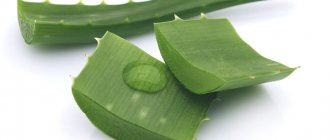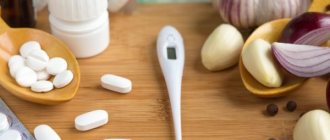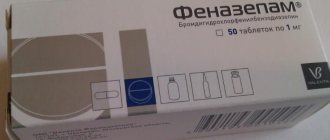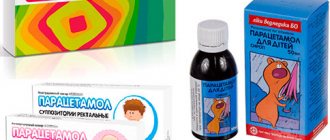A perennial tuberous plant, ginger grows in Ceylon, Japan, India, China, and Central America. It belongs to spices. This spice came to Europe from the East. Ginger roots are used in cooking and folk medicine. Even 3000 years ago, the medicinal properties of the plant were known. Now it is actively used for the prevention and treatment of ailments, although many still think that the properties of ginger are limited only to its pickled taste. We will tell you about all the beneficial properties of ginger for the human body.
Composition of ginger
The beneficial properties of ginger are explained by its rich composition. It would take a very long time to list the substances that make up this plant. The following can be distinguished: phosphorus, magnesium, potassium, calcium, chromium, aluminum, silicon, nicotinic acid, linoleic acid, choline, caprylic acid, vitamin C, fats, choline, asparagine. Ginger contains many amino acids that are essential for the body. These are phenylalanine, methionine, tryptophan.
The main components of ginger root include starch, sugar, gingerol, borneol, camphene, bisabolene, and citral. The main component is gingerol. It is to him that this spice owes its specific taste. Essential oils give the plant its aroma. Ginger has very few calories, only 80 kcal per 100 grams.
Ginger is a source of phytoncides
The substances contained in ginger have antimicrobial properties. They are expressed at a fairly high level. This allows you to use ginger to treat skin diseases and fight respiratory tract infections.
Traditional medicine recommends chewing a slice of fresh ginger root at the initial stage of a throat disease. Relief comes immediately, the pain goes away. If this method is used several times a day, the disease will completely recede.
You may be interested in: Bay decoction: healing properties
Ginger is a metabolic stimulant
Obesity causes a decrease in metabolic rate. Because of this, even the usual amount of food gives the body more calories than usual. As a result, numerous fat deposits appear on the thighs and sides. To cope with them, physical activity and a low-calorie diet are necessary. And the use of ginger promotes the process, increasing the effectiveness of the methods, creating favorable conditions. Increasing metabolism will help a person become slimmer.
Ginger is a source of antioxidants
Ginger root contains a large amount of vitamin E. It is an antioxidant and a means of preventing cancer. By consuming a couple of slices of the root of this plant daily, you can give the body the opportunity to resist the development of pathology.
Description of the product and its types
Ginger is a perennial herbaceous plant that grows in Western India, Southeast, Western Asia, and China. The plant reaches a height of about 1.5 meters, the leaves look like reeds. There are several varieties of the plant that differ in color, aroma, and rhizome shape. Black (Barbados) ginger is an unpeeled rhizome.
Bleached ginger consists of peeled rhizomes from which the top layer is removed before sale. The highest grade of plant is considered to be Jamaican root. On sale you can find the product in fresh, pickled, or ground form. It is believed that ginger is healthy in any form, but the fresh root contains more medicinal substances. After heat treatment, some of the vitamins are destroyed.
Ginger for women's health
The antioxidant property of ginger allows women to use it as a remedy against premature aging. The root is a powerful anti-inflammatory agent, its use is justified in the fight against parasites, fungi and viruses.
In the treatment of infertility, ginger is used to improve blood circulation and also as an anti-inflammatory agent. Its use makes it possible to improve blood flow in the pelvic organs, relieve inflammation, thereby creating normal conditions for conceiving a child.
During and before menstruation, ginger helps relieve pain, weakness, and relieves bad mood and cramps. It is enough to prepare ginger tea and drink it warm. The benefits of this drink have been confirmed by scientists from the University of Tehran. They observed a group of women with severe signs of PMS. Ginger tea helped manage symptoms without negative effects.
Opinions differ on whether ginger is beneficial or harmful for pregnant women. It is better, in order not to harm the fetus, to consult a gynecologist who is monitoring the pregnancy. It is believed that in small quantities in the first trimester, ginger will not harm the expectant mother. On the contrary, it will help get rid of toxicosis and improve your well-being. During lactation, ginger can get into the milk; this spice can spoil the taste of the milk, affect the baby's sleep, and cause allergies.
How to make ginger tea
You can use fresh or ground root to make tea. The easiest way is to pour a glass of boiling water over fresh chopped ginger and leave for 15 minutes. After the liquid acquires a yellowish tint and a specific aroma, the tea is ready for drinking. This drink is drunk to enrich the body with useful elements, vitamins, boost immunity, improve metabolic processes, and reduce weight.
Another method of preparation: 2.5 tbsp. spoons of grated fresh product are placed in a thermos, poured with 1 liter of boiling water, and left for 40 minutes. Another way: cut the ginger into small cubes or thin slices, add 1 liter of water, and cook for 25 minutes. Cool, filter, add honey, cinnamon, and lemon to taste. Ginger tea is not recommended to drink before bed, as its invigorating effect may cause insomnia.
Ginger for men's health
According to scientists, ginger is one of the five best medicinal plants for men's health. It can be considered a sexual stimulant. Regular intake of ginger and preparations with it improves the functioning of the vascular system, blood circulation, and removes bad cholesterol from the body. The man will always be in good shape, the erection will be in normal condition. Ginger is a wonderful aphrodisiac.
You may be interested in: Is it possible to drink chamomile, what are its benefits?
Ginger root contains a lot of vitamins; they can stimulate the functioning of the pelvic organs. Zinc increases testosterone production. The plant helps fight germs and bacteria, it helps in the treatment of sexual diseases and inflammatory processes.
General information
The plant benefits people, and reviews of the results of use are positive. It has been scientifically proven that the properties of ginger are due to the presence of many vitamins and minerals. Their greatest concentration is located under the skin. When cleaning, it should not be carefully cut off, just rinse well and place in cold water for an hour.
Ginger belongs to the Ginger family (lat. Zingiberaceae), along with cardamom and turmeric. It is grown on an industrial scale in countries located in the tropics and subtropics (India, Jamaica, Fiji, Indonesia, Australia).
The rhizome of the plant is eaten fresh, dry, as part of spices, in the form of juice or ginger essential oil. It is used to make tea, seasoning for spicy dishes, dried or candied. Used by some pharmaceutical manufacturers to mask the taste of bitter medicines such as syrups, capsules and lozenges. Helps reduce nausea, pain and inflammation.
Ginger contraindications
- It is necessary to carefully study the contraindications before trying ginger for the first time. When taking any medications, you should consult a specialist to find out how compatible ginger is with them.
- The spice is contraindicated for any problems associated with inflammation of the mucous membrane (stomach, intestines).
- In case of cirrhosis and hepatitis C, ginger can lead to complications of diseases.
- Ginger should not be consumed by people who have stones in the bile ducts. The spice can cause the stones to move, causing severe pain.
- Hemorrhoids are also a contraindication for ginger. This disease causes bleeding, and ginger thins the blood.
- People with heart disease and high blood pressure should be careful when taking ginger.
- Children under two years old are not recommended to take all spices, including ginger.
- There is individual intolerance to the plant and allergic reactions.
- At a temperature, ginger can raise it even further.
How to pickle ginger at home? Harm and benefits of pickled ginger
Many have seen slightly dried ginger roots, vaguely reminiscent of small, gnarled forest men. They are sold in markets and supermarkets, and are widely used in the preparation of various dishes and drinks (for example, ginger beer or tea), in the form of a spicy seasoning. But in addition to taste, this gift of nature also has a rather powerful effect for treatment, and pickled ginger at home is used as a folk medicine for certain diseases and as a preventive measure. It is used both in cosmetology and in dietetics (special tea for weight loss). Its healing characteristics have been known to healers since ancient times, and for modern people, pickled ginger at home is an accessible and inexpensive remedy. Because finding fresh ginger for sale and preparing it according to folk recipes will not be difficult. So let's try it too!
More about the benefits of ginger
- It takes physical and mental performance to a new level.
- Helps remove waste from the body (sweating).
- Relieves pain from arthritis.
- Serves as a good carminative.
- Promotes the formation of gastric juice and proper formation of bile.
- Protects sushi lovers from parasites that may be found in raw fish meat.
Contraindications
Almost everyone can use pickled ginger. The benefits and harms of the plant are at different, incomparable levels. But, however, there are also contraindications for use, although they are few. We should not forget that the strong effect of ginger is contraindicated at high temperatures, since the root has a warming effect. There is no need to eat ginger if there is bleeding or chronic ulcers in the gastrointestinal tract or gastritis. Not recommended for use by breastfeeding mothers. But still, in the question “Pickled ginger: benefits and harm,” a significant advantage will be on the side of the first point. And in some cases its benefits are simply invaluable.
Follow the recipe step by step
- We make the marinade. You need to take half a glass of sour dry (preferably rose) wine, a heaped spoonful of sugar, 100 ml of weak apple or natural grape vinegar. Mix everything. You can add a small glass (30 grams is plenty) of strong alcohol - vodka, moonshine or cognac - to the marinade to make the marinating process go faster.
- Bring the mixture to a boil, but do not boil, but immediately remove from the heat and pour the prepared ginger, cut into small pieces and dried on a towel, into the pan.
- How long does it take to marinate? It is advised to leave it for 4 days to a week, and then the ginger can be consumed (if you use rose wine, it acquires a characteristic color and a very delicate taste).
- You need to store ginger in the bottom of the refrigerator in the same marinade - this way it does not spoil for quite a long time. And you can use it almost daily.
Pickled ginger. Homemade recipe
- Carefully scrape a pound of ginger, rinse it in running water and cut it into thin round slices with a sharp knife (cut as thinly as possible to make the product tender and tasty). Place the prepared ginger in a ceramic bowl and set aside for 15 minutes.
- Bring one and a half liters of water to a boil, adding a large spoonful of salt.
- Pour the root slices into the bowl and let stand for another 15 minutes so that the ginger swells and softens a little.
- Then drain half of the liquid, and add a glass of vinegar (natural: rice, apple or grape) to the other half, as well as a third of a glass of sugar. Stir and pour liquid over the root.
- Within 6-12 hours you get delicious and healthy pickled ginger. The recipe at home, as you can see, is not at all difficult to implement. We store it at the bottom of the refrigerator, where the temperature is above zero. There, seasoning and medicine may not spoil for up to six months.
What are the side effects of medicinal use?
Like any medicine, this root, when used for medicinal purposes, can in some cases exhibit unwanted side effects on the human body.
The most indicative in this regard is the use of ginger for colds. It works well until the patient’s temperature rises above 39 degrees. In this case, a side effect of using the drug is possible in the form of an even greater increase in temperature, as well as provoking bleeding.
- This product works well in the treatment of various liver diseases, easing their course, however, with hepatitis, the opposite effect may be observed in the form of an exacerbation of the disease.
- Ginger root strengthens the walls of blood vessels, removes excess cholesterol from the blood, improves the activity of the heart muscle, but if the patient has high blood pressure, then this product can aggravate the situation (how does ginger affect blood pressure?).
- A problem may also arise when trying to cleanse blood vessels of cholesterol plaques with ginger if the patient has frequent nosebleeds or hemorrhoids. The product's ability to thin the blood seriously aggravates the course of these diseases.
- This remedy effectively combats stomach cramps. However, if the patient has ulcerative manifestations in the stomach or intestines, the effect can be depressing.
- In the initial stage of pregnancy, ginger perfectly relieves attacks of nausea, but if the expectant mother has high blood pressure, then in such a situation the harm may outweigh the benefit.
So, ginger root can be both beneficial and harmful . Healing products based on it can effectively and in a variety of ways help improve human health. However, not being real drugs, they can only be auxiliary means, but not the main ones in the treatment of serious diseases.
Fresh, ground, dried – which is better?
Ginger in various forms is added to sauces, soups, salads, drinks, etc. It is pickled and served as an appetizer. Because of gingerol, the fresh root has a rich, pungent taste; it is often used to add piquancy to meat and other savory dishes. It goes especially well with cumin and turmeric.
During drying, gingerol and shogaol are partially destroyed, and the powder loses not only its pungency, but also its beneficial qualities. Therefore, for medicinal purposes, fresh ginger is preferable.
The older the plant, the more pronounced the pungency. Pieces of young root are used to prepare a tea drink.











